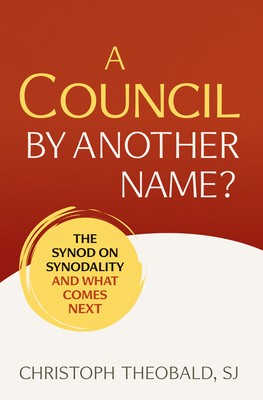
- We will send in 10–14 business days.
- Author: Christoph Theobald
- Publisher: Liturgical Press
- ISBN-10: 081468971X
- ISBN-13: 9780814689714
- Format: 15.6 x 22.7 x 1.6 cm, minkšti viršeliai
- Language: English
- SAVE -10% with code: EXTRA
Reviews
Description
The ongoing synodal process of the Catholic Church engages a new vision of being church within human history and society. At the Synod on Europe in 1999, Cardinal Carlo Maria Martini called for a new ecumenical council. Too wise to use this term explicitly, he said that he hoped "for the new century, an experience of universal encounter between the bishops." Unresolved questions demanded sound answers: a lack of ordained ministers, the role of women in the church, the participation of the laity, new challenges regarding sexuality and marriage, ecumenism, and more. Since then, even more questions have been raised regarding the sexual abuse crisis, the experience of widespread discouragement, and polarization within the church. In A New Council That Does Not Say Its Name? world-renowned European theologian Christoph Theobald explains why synodality is a constitutive dimension of the church and urges readers, especially ecclesial leaders, to trust the synodal process and to engage in it in their rightful place. Based on conversion that is both personal and institutional, Theobald cites Pope Francis's call for cooperation and creativity as an essential element for confronting the current difficulties effectively, approaching the future peacefully, and welcoming a new and decisive vision of the church within human history and society.EXTRA 10 % discount with code: EXTRA
The promotion ends in 23d.13:05:22
The discount code is valid when purchasing from 10 €. Discounts do not stack.
- Author: Christoph Theobald
- Publisher: Liturgical Press
- ISBN-10: 081468971X
- ISBN-13: 9780814689714
- Format: 15.6 x 22.7 x 1.6 cm, minkšti viršeliai
- Language: English English


Reviews